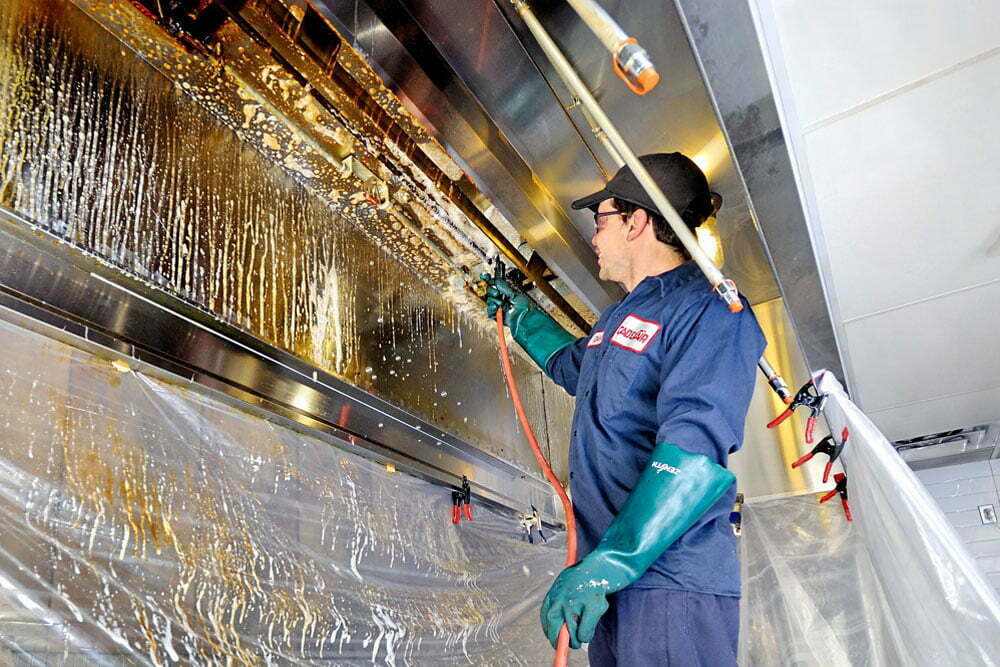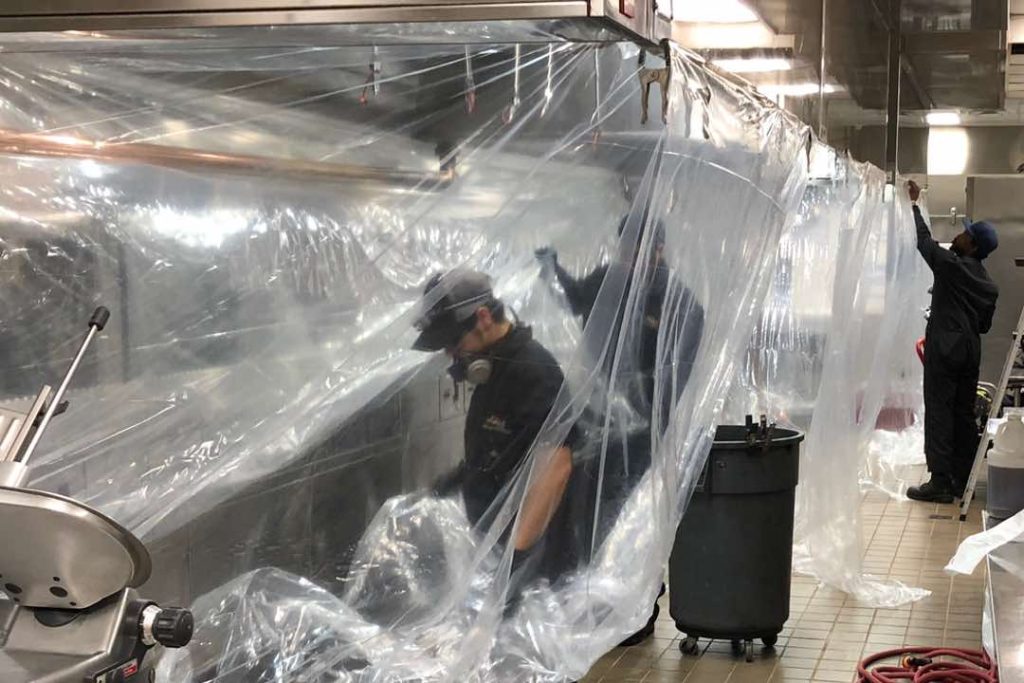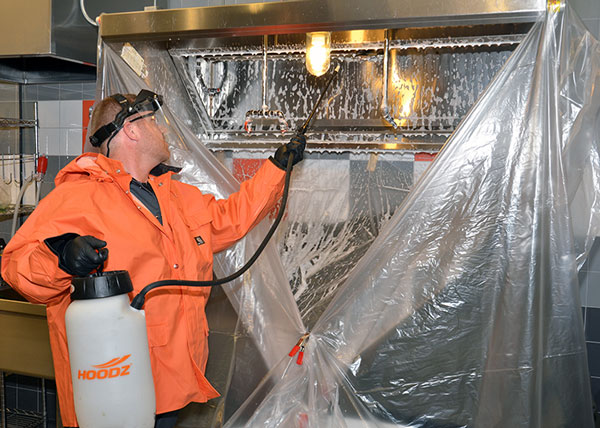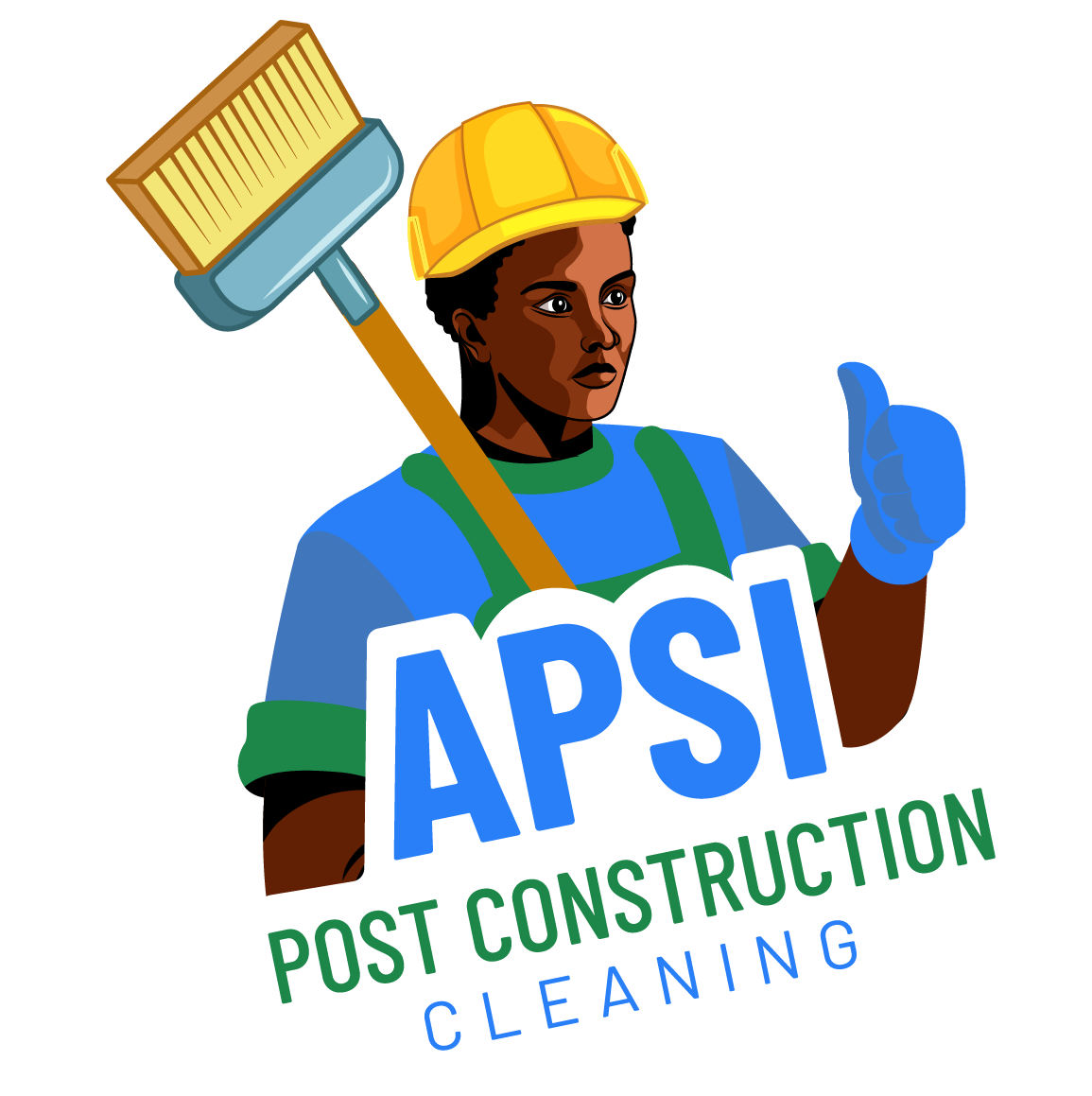Maintaining a clean and safe kitchen environment is crucial for any restaurant or food service establishment. A key aspect of this maintenance is commercial exhaust hood cleaning, a practice that significantly reduces fire hazards and ensures the health and safety of kitchen staff an patrons.
This blog illuminates the importance of commercial exhaust hood cleaning, breaks down the cleaning process, and outlines best practices to help you keep your kitchen running smoothly and in compliance with safety standards.

Importance of Commercial Exhaust Hood Cleaning
Fire Prevention
● Grease Build-Up: One of the primary reasons for commercial exhaust hood cleaning is to prevent kitchen fires. Grease and grime accumulation in hoods, ducts, and vents can easily ignite, posing a significant fire hazard.
● Regular Cleaning: Ensuring that the exhaust hood is regularly cleaned reduces the risk of grease fires, which can cause extensive damage to the kitchen and endanger lives.
Air Quality
● Removal of Smoke and Odors: A clean exhaust system helps to maintain good. indoor air quality by effectively removing smoke, odors, and harmful pollutants from the kitchen.
● Healthier Environment: Reducing the presence of airborne contaminants creates a healthier working environment for kitchen staff, preventing respirator issues and other health problems.
Regulatory Compliance
● Health and Safety Regulations: Regular commercial exhaust hood cleaning is mandated by health and safety regulations to prevent contamination and ensure a safe working environment.
● Insurance Requirements: Many insurance companies require proof of regular exhaust hood cleaning to validate coverage in case of a fire.
The Commercial Exhaust Hood Cleaning Process
Inspection
The first step in commercial exhaust hood cleaning is a thorough inspection.
● Assessing Build-Up: Identifying the level of grease and debris accumulation helps in planning the cleaning process.
● Checking Components: Inspecting the exhaust hood, filters, ducts, and fans ensures that all parts are in good working condition.
Pre-Cleaning Preparation
Preparation is crucial for an effective cleaning process.
Covering Kitchen Equipment: Protecting kitchen equipment and surfaces from water and cleaning chemicals is essential.
Shutting Down Systems: Turning off the exhaust system and disconnecting power sources to ensure safety during cleaning.
Cleaning
The cleaning phase involves several detailed steps to ensure thorough removal of grease and grime.
Degreasing Agents: Applying degreasing agents to break down grease deposits on the hood, ducts, and filters.
Scrubbing and Washing: Manual scrubbing followed by high-pressure washing to remove all residues.
Cleaning Fans and Ducts: Ensuring that fans and ducts are free from grease build-up to maintain efficient airflow.

Final Inspection and Testing
Post-cleaning inspection and testing ensure the exhaust system is functioning correctly.
Visual Inspection: Checking for any remaining grease or dirt and verifying that all components are clean.
System Testing: Turning on the exhaust system to ensure it operates efficiently and safely.
Best Practices for Commercial Exhaust Hood Cleaning
Frequency of Cleaning
● Regular Maintenance: Establishing a regular cleaning schedule based on the volume of cooking and type of cuisine. High-volume kitchens may require cleaning every three months, while others might need it semi-annually.
● Monitoring Build-Up: Regularly monitoring grease build-up can help determine the optimal cleaning frequency.
Use Professional Services
● Certified Technicians: Hiring certified professionals ensures that the cleaning is done according to industry standards and regulations.
● Quality Equipment: Professional cleaning companies use specialized equipment and cleaning agents to achieve thorough cleaning.
Employee Training
● Routine Cleaning: Training kitchen staff to perform routine cleaning tasks such as wiping down the hood and filters daily.
● Identifying Issues: Educating staff on identifying signs of excessive grease build-up or malfunctioning components.
Documentation and Compliance
● Record Keeping: Maintaining detailed records of all cleaning activities, including dates, services performed, and inspection results.
● Compliance Reports: Providing documentation to health inspectors and insurance companies as proof of regular maintenance and compliance with safety standards.
Benefits of Hiring Professional Commercial Exhaust Hood Cleaning Services
Expertise and Efficiency
● Experienced Staff: Professional cleaning companies have trained staff who understand the intricacies of commercial exhaust hood cleaning.
● Time-Saving: Hiring professionals can significantly reduce the time required to clean an exhaust system, allowing for quicker kitchen operations.
Comprehensive Cleaning
● Thoroughness: Professional cleaners provide a comprehensive service that covers all aspects of the exhaust system, from hoods to ducts and fans.
● Attention to Detail: They ensure that every part of the system is clean and free from grease, meeting high standards of cleanliness.
Cost-Effective
● Reduced Liability: Proper cleaning reduces the risk of accidents and health issues, potentially lowering liability and insurance costs.
● Extended Equipment Lifespan: Regular and proper cleaning helps maintain the integrity and longevity of exhaust system components.

Properly maintaining your commercial exhaust hood is vital for ensuring a safe and healthy kitchen environment.
By understanding the importance of regular cleaning, following best practices, and employing professional services, restaurant owners can significantly reduce fire risks, comply with health regulations, and improve overall kitchen efficiency. Prioritizing commercial exhaust hood cleaning not only protects your establishment but also contributes to the well-being of your staff and customers.
With a clean and well-maintained exhaust system, you can focus on what truly matters—delivering excellent food and service

